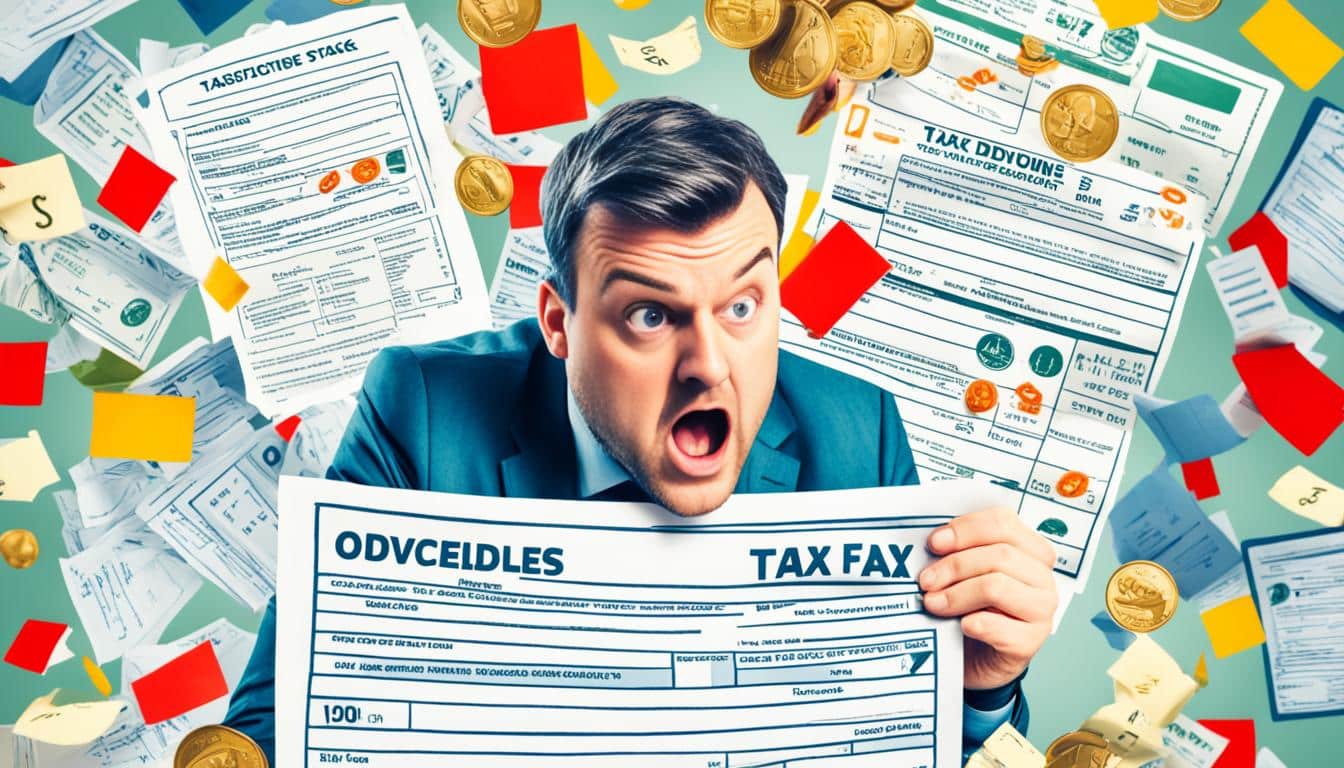You’ve just opened your credit card statement, and there it is – a late fee staring you in the face. As you ponder the hit to your wallet, a thought crosses your mind: “Can I at least deduct this on my taxes?” Well, buckle up for a wild ride through the world of late payment fees and tax deductible expenses.
The IRS, in all its bureaucratic glory, has some pretty strict rules when it comes to deductions. While you might hope to recoup some of those pesky late fees, the reality isn’t quite so rosy. Personal credit card fees? Sorry, no dice. But don’t throw in the towel just yet – there’s a glimmer of hope for business expenses.
Small business owners, rejoice! The IRS might just be your unexpected ally. Those “ordinary” and “necessary” business credit card fees? They’re fair game for deductions. This includes processing charges, late fees, and even annual fees. Just remember to keep your personal and business expenses as separate as oil and water.
Now, about those IRS penalties – they’re about as deductible as a chocolate teapot. Whether it’s for failing to file, pay, or for bouncing checks, these penalties are yours to bear. They can stack up faster than pancakes at a breakfast buffet, so it’s best to stay on Uncle Sam’s good side.
Key Takeaways
- Personal credit card late fees are not tax deductible
- Business-related credit card fees may be deductible
- IRS penalties cannot be deducted from your taxes
- Separating personal and business expenses is crucial
- Small businesses can deduct various credit card fees
- Interest on business credit cards is tax deductible
- Late filing and payment penalties can accumulate quickly
Understanding Late Fees and Tax Deductibility
Late fees can really hurt your wallet. They come from missing rent or credit card payments. Can you claim these fees on your taxes? Let’s look into late fees and taxes.
What Constitutes a Late Fee?
Late fees are common. You might get them for being late on rent. Or for missing a credit card payment. Loan late fees happen when you’re behind on your loan payments. These fees help encourage you to pay on time.
The IRS Stance on Penalty Deductions
The IRS has rules on penalties and fines. They usually don’t let you deduct these for personal stuff. This includes late payment interest. The Tax Cuts and Jobs Act of 2017 changed things, raising standard deductions but cutting many itemized ones.
Differentiating Between Personal and Business Expenses
Personal late fees aren’t deductible. But for businesses, it’s different. Companies can deduct business late fees as business costs. This includes credit card and loan late fees if they’re for business. But they must be directly related to the business.
- Personal late fees: Not tax-deductible
- Business late fees: Potentially deductible
- Key factor: Direct relation to business operations
Tax laws are complex. Always talk to a tax expert for advice that fits your situation.
Are Late Fees Tax Deductible?
Late fees can be a big hassle with personal finance. You might ask if you can deduct them on taxes. Let’s look into if late fees can be deducted and some smart tax tips.
Personal Late Fees: The Non-Deductible Reality
Sorry, late fees on your personal credit cards aren’t deductible. Congress stopped allowing personal interest deductions in 1986. So, those extra charges for being late won’t lower your taxes.
Business-Related Late Fees: A Potential Silver Lining
But, there’s hope for business owners. The IRS lets you deduct “ordinary and necessary” business costs. This includes late fees on business credit cards. About 75% of business costs can be deducted. Keep your business and personal money separate to get the most tax benefits.
Exceptions and Special Considerations
Not all late fees are the same. For instance, you can deduct half of business meals. If you work from home, you might deduct part of your real estate taxes. Just remember, only 25% of home office costs are deductible, so keep track of how you use your space.
Smart tax planning can help you follow these rules. Use business credit cards for work to keep them apart from your personal spending. This makes tax time simpler and helps you not miss out on deductions.
Conclusion
You’ve learned about tax deductible late fees and IRS rules. Personal late fees might not help you, but business penalties could. It’s important to know about tax laws to keep your finances healthy.
When making business tax plans, keep good records. This can help you get deductions or avoid mistakes. Getting advice from a tax expert is also smart. They can guide you through tax rules and help you save money.
Try to avoid late fees if you can. But if you can’t, know that business late fees might be tax deductible. Remember, knowing about taxes can save you money!








